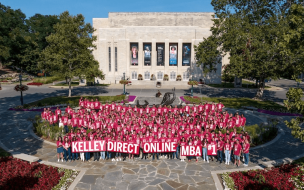Booth claimed the top spot for the fifth year on the trot, in a ranking that revealed significant changes in fortunes for a number of the world’s best-known MBA programs.
The Economist’s 2016 ranking, looked at with grave importance by prospective MBA students and b-schools alike, will go down as the year of volatility.
A slew of business schools surged into pole position, led by Northwester’s Kellogg School of Management, which gained five spots to finish in second place. In third place is Virginia’s Darden School of Business.
Stanford’s Graduate School of Business shot up eight spots to finish no.5, behind Harvard Business School (HBS), completing US dominance at the top of the table.
Indeed, the Economist’s ranking put US business schools firmly back into the spotlight, after a year in which applications to MBAs in the States declined and INSEAD, a French school, knocked HBS off the no. 1 spot in the Financial Time’s equally afflictive MBA ranking.
Only two European business schools feature in The Economist’s top-10 — IESE Business School of Spain and HEC Paris of France.
ESADE Business School, also of Spain, led the biggest losses with a fall of 33 places to no. 54.
The Economist’s ranking with fuel further concerns that Europe’s business schools continue to languish behind their US peers in key league tables, which are essential in marketing MBA programs and attracting top talent.
However, the list will also fuel controversy in ranking lowly a number of business schools considered to be the best in the world.
Just this week, IMD of Switzerland revealed that it was trying to pull out of The Economist’s ranking, after falling from no. 1 in 2008 to no. 23 today.
Wharton School, for example, is down in twelfth place, INSEAD is lower still at no. 13, and London Business School barley made it into the top-25. That’s despite the fact that all three are highly regarded and place highly in other prominent MBA rankings.
The Economist ranks schools based on career opportunities (35%) educational experience (35%), salary boost (20%) and networking opportunities (10%). Its major difference to other rankings is that it focuses more heavily on student satisfaction.
RECAPTHA :
f4
38
41
da








